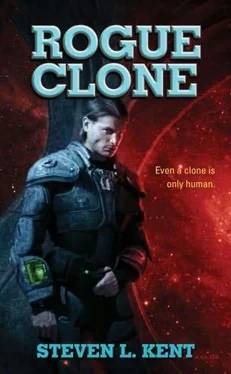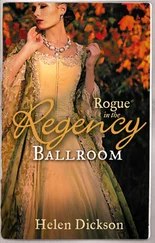Steven Kent - Rogue Clone
Здесь есть возможность читать онлайн «Steven Kent - Rogue Clone» весь текст электронной книги совершенно бесплатно (целиком полную версию без сокращений). В некоторых случаях можно слушать аудио, скачать через торрент в формате fb2 и присутствует краткое содержание. Жанр: Боевая фантастика, на английском языке. Описание произведения, (предисловие) а так же отзывы посетителей доступны на портале библиотеки ЛибКат.
- Название:Rogue Clone
- Автор:
- Жанр:
- Год:неизвестен
- ISBN:нет данных
- Рейтинг книги:3 / 5. Голосов: 1
-
Избранное:Добавить в избранное
- Отзывы:
-
Ваша оценка:
- 60
- 1
- 2
- 3
- 4
- 5
Rogue Clone: краткое содержание, описание и аннотация
Предлагаем к чтению аннотацию, описание, краткое содержание или предисловие (зависит от того, что написал сам автор книги «Rogue Clone»). Если вы не нашли необходимую информацию о книге — напишите в комментариях, мы постараемся отыскать её.
Rogue Clone — читать онлайн бесплатно полную книгу (весь текст) целиком
Ниже представлен текст книги, разбитый по страницам. Система сохранения места последней прочитанной страницы, позволяет с удобством читать онлайн бесплатно книгу «Rogue Clone», без необходимости каждый раз заново искать на чём Вы остановились. Поставьте закладку, и сможете в любой момент перейти на страницу, на которой закончили чтение.
Интервал:
Закладка:
“Of course I noticed it,” I said. I also noticed how absolutely vulnerable these transports would be if a couple of GCF dreadnoughts happened to appear, but I did not mention it. Shoot a few cannons straight down this line of traffic, and you would likely kill half the population of New Columbia. But judging by the pinpoint tactics the invaders used in their siege of Gateway Outpost, I did not think they were after civilian casualties.
On the other hand, a billion casualties would interest Bill “the Butcher” Patel. Patel was a radical separatist from the Cygnus Arm who was not constrained by morals or religious beliefs.
The line of transports did not extend from the edge of the atmosphere down to the spaceport. In the full gravitational pull of the atmosphere, transports would not be able to support themselves in a slow-moving line without burning tons of fuel.
I flew down through an evening sky, penetrating a thick layer of clouds as my approach slowed to a few hundred miles per hour. The weather had turned bad over Safe Harbor. Mercury-colored clouds formed a washboard ceiling over the city. Lightning illuminated pockets in the clouds with dazzling flashes. Rain fell in heavy drops that burst across my windows. Below me the city was dark. Not a light shown in the forest of skyscrapers that covered Safe Harbor. No street lights shined. The giant billboards on the sides of the buildings were invisible in the blackness.
The city may have looked lifeless, but the air above it fairly bristled with movement. I looked up through the top corner of my rain-spattered windshield and saw the darting profiles of three F-19s passing above me like shadows against the steel wool clouds. Beneath me, three more crossed my path.
The Marines, the Army, and the Air Force all maintained bases around the city of Safe Harbor. Unlike Gateway, New Columbia was a well-protected planet. The Marines of New Gibraltar Outpost had only cannons to defend themselves from attack. Here, on New Columbia, there were squadrons of F-19 Falcons, and the Navy had capital ships guarding the planet from above. The invasion of Gibraltar had been a massacre. An invasion of Safe Harbor would be a battle.
Against the jungle of shadows that was the city of Safe Harbor, the spaceport looked like an eruption of light. Two lines of strobe lanterns clicked on and off along the runway, creating dashes of midnight-blue. In the distance, white glare poured out of a row of hangars at the edge of the runway. Lights shone around the outside of the air terminal and more light spilled from the windows.
I landed the Starliner on the edge of the runway and coasted toward the hangars. Two runway workers placed it in a security hangar. I asked if it would be safe, and they said it would. “As safe as anything else on the planet,” one of them amended. The hangar had been filled with private craft just one day earlier. Now my ship was the only one. The hangar crew drove me to the main terminal of the spaceport in silence.
A few weeks earlier and in another life, I had sat in this very building trying to distract myself as I waited for a flight. Back then I sensed ambition in the air. Safe Harbor attracted businessmen and tourists, people who were glad to travel or glad to clinch the next big deal. This time I sensed something very different—depression and panic.
In the terminal, long lines of people sat silently clutching their belongings. The richest people, able to buy their way to the front of the line, had left first. The last of the New Columbian elite were probably in the queue of transports I passed on my way down from the discs. The people I saw in the spaceport now were the poor and the middle class—people with families and suitcases; little girls with dolls and boys with video games. They formed lines that snaked back and forth the entire length of the lobby—rows of people in perfectly straight lines standing so crowded together that the lines disappeared altogether. I heard sneezing and sobbing and a few whispers, but this population was mostly in shock.
Many people wore damp clothing. Had the spaceport been its normal chilly temperature, these people would have caught colds, but the sheer numbers overloaded the air-conditioning, and the atmosphere was hot inside the terminal and the air smelled of sweat.
“Where do you think you’re going?” a Marine in combat armor asked as I reached the main entrance. I flashed him the newly-minted identification card that Colonel McAvoy gave me. It identified me as “Colonel Wayson Harris.”
The man looked at it and snapped to attention. “My apologies, sir! The private was not aware that he was speaking with an officer.”
He saluted.
I saluted back.
“Carry on, Marine,” I said as I stepped around the boy and left, glad that I was no longer a mere grunt. Stepping out of the terminal, I entered a cold, wet night. The rain fell continuously. Puddles covered the sidewalk leading away from the terminal building. A line of streetlights stretched as far as the parking garage. Beyond that, a shroud of inky darkness hid everything from view. Before stepping out from under the awning, I looked into the sky and sighed. I did not know who I might meet in that darkness, but it did not matter much—this time I was armed.
I stole a car. I didn’t have any other options. Supposing that a city-wide evacuation and naval attack might hurt their business, the car rental agencies had closed for the night …and the next night, and the night after that. In honor of Billy the Butcher, I found a sporty little Paragon in the parking lot and wired it. Patel’s Paragon was orange and this one was red, but they both had the same shoehorn-shaped chassis.
I did not bother myself with fables about returning the car or justifications about the owner of the car having cast it away. I needed wheels, this car looked nice. Once I had the engine going, I threaded my way though the spaceport parking lot and drove into town.
There was something eerie about traveling through an abandoned city that reminded me of swimming underwater. It might have been the emptiness or the silence or the lack of movement. The electricity was out almost everywhere. Without their red, yellow, and green glow, the traffic lights looked like misshapen trees. I did not care for crowds, but I found this emptiness unsettling.
Driving down dark streets lined by lifeless buildings, my isolation seemed to amplify itself. I looked into storefronts that were as dark as caves. It wasn’t just that the lights were off—life itself was gone. It was like climbing up an escalator that has been turned off. For psychological reasons, climbing dead escalators seems harder than walking up stairs. It feels like civilization has failed.
I drove past the movie house where I had met Jimmy Callahan and watched The Battle for Little Man . The entrance was a black hole. The holotoriums would be empty and the projection rooms dark. It seemed unnatural.
Jimmy Callahan, I mused, with his bulging muscles and his big, big talk, would be one of the last men on New Columbia. The Mogats and the Secessionists may have chased everybody else away, but Callahan was still on the planet, right where I left him, locked up in a Marine base brig. The irony was that the very spot where I placed him for safekeeping would soon be the most dangerous location on the planet.
I was driving through uptown Safe Harbor and turned a corner. The block in front of me was completely demolished. For a moment I thought the attack must have begun, and then I recognized where I was. This was the neighborhood that Patel bombed. Only three weeks had passed since that bombing …two weeks and an era.
Something far more dangerous than Billy the Butcher Patel was coming to New Columbia. Who would have believed it? Jimmy Callahan who had talked so big and gotten himself into so much trouble might just be the key to winning the war.
Читать дальшеИнтервал:
Закладка:
Похожие книги на «Rogue Clone»
Представляем Вашему вниманию похожие книги на «Rogue Clone» списком для выбора. Мы отобрали схожую по названию и смыслу литературу в надежде предоставить читателям больше вариантов отыскать новые, интересные, ещё непрочитанные произведения.
Обсуждение, отзывы о книге «Rogue Clone» и просто собственные мнения читателей. Оставьте ваши комментарии, напишите, что Вы думаете о произведении, его смысле или главных героях. Укажите что конкретно понравилось, а что нет, и почему Вы так считаете.












